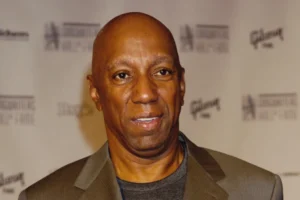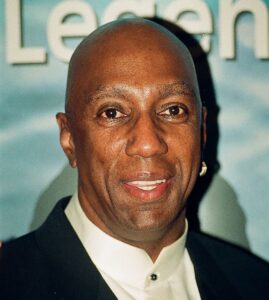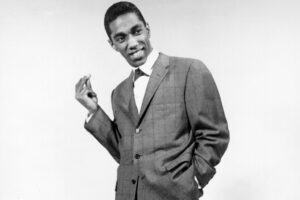Honoring the dead is a thankless task. There will always be a name forgotten, someone who wasn’t included but should’ve been.There’s always a lot of “should’ve been.” We lose so many in a year who don’t generate a headline. In the creative class, it’s an epidemic. Those deaths ripple through the scene that knew them directly, but even the most “in the know” haven’t heard of them across town. That might be a Detroit thing, with so many creative pockets that don’t connect to one another.But it’s also just the life cycle of most artists, who end up being a coral reef to the creative scene — each helping to build a beautiful ecosystem underneath the surface, but only a few making waves that bring notoriety and a notice in the paper when they die.Two musicians we lost last year represent the luck, patience, and fight it takes to leave a lasting impact on this planet.
We lose so many in a year who don’t generate a headline. In the creative class, it’s an epidemic. Those deaths ripple through the scene that knew them directly, but even the most “in the know” haven’t heard of them across town. That might be a Detroit thing, with so many creative pockets that don’t connect to one another.But it’s also just the life cycle of most artists, who end up being a coral reef to the creative scene — each helping to build a beautiful ecosystem underneath the surface, but only a few making waves that bring notoriety and a notice in the paper when they die.Two musicians we lost last year represent the luck, patience, and fight it takes to leave a lasting impact on this planet. Detroit singer-songwriter Sixto Rodriguez, who died in August 2023 at the age of 81, spent decades convinced he’d never get his due. He worked construction around Detroit’s Cass Corridor neighborhood (including installing the roofing on my apartment building), a mysterious figure with a long duster jacket and a guitar strapped to his back.Few knew that he had released two excellent albums back-to-back in the early 1970s — Cold Fact and Coming from Reality. Those records did nothing locally or nationally but turned him into an international star in South Africa and Australia, where he was viewed as a Bob Dylan-like figure.No one knew that in Detroit, including Rodriguez himself. Over a decade ago, however, those records started to resurface in the city’s music scene, with Rodriguez performing much-buzzed-about shows in dive bars.The 2012 documentary Searching for Sugar Man won an Oscar and made Rodriguez a bona fide celebrity, and he performed around the country and overseas to thousands of new fans. Songs written years ago, like “Crucify Your Mind” and “Hate Street Dialogue,” still felt shockingly fresh and relevant.
Detroit singer-songwriter Sixto Rodriguez, who died in August 2023 at the age of 81, spent decades convinced he’d never get his due. He worked construction around Detroit’s Cass Corridor neighborhood (including installing the roofing on my apartment building), a mysterious figure with a long duster jacket and a guitar strapped to his back.Few knew that he had released two excellent albums back-to-back in the early 1970s — Cold Fact and Coming from Reality. Those records did nothing locally or nationally but turned him into an international star in South Africa and Australia, where he was viewed as a Bob Dylan-like figure.No one knew that in Detroit, including Rodriguez himself. Over a decade ago, however, those records started to resurface in the city’s music scene, with Rodriguez performing much-buzzed-about shows in dive bars.The 2012 documentary Searching for Sugar Man won an Oscar and made Rodriguez a bona fide celebrity, and he performed around the country and overseas to thousands of new fans. Songs written years ago, like “Crucify Your Mind” and “Hate Street Dialogue,” still felt shockingly fresh and relevant. UNSPECIFIED – CIRCA 1970: Photo of Barrett Strong Photo by Michael Ochs Archives/Getty ImagesThey only sound better as time goes on.And yet Rodriguez stayed humble through it all, breaking his back building the Cass Corridor into Midtown while he waited patiently for his well-deserved turn in the spotlight. “I was too disappointed to be disappointed,” Rodriguez said of all those years in between during an interview on 60 Minutes.For Rodriguez, his talent should’ve been recognized the day his debut album was released.Similarly, Barrett Strong, the Motown songwriter who died last January, also at 81, should’ve been credited for the hit that built Berry Gordy’s empire without having to fight for it.Strong was literally crossed out from songwriting credit for “Money (That’s What I Want),” the infectious hit that everyone adored and even The Beatles covered. Strong didn’t see much if any money from writing that hit single, which Gordy used to finance Motown.Until the day he died, however, he was still making his case for what was rightfully his. But like Rodriguez, he didn’t let his misfortune derail him from a full life.Strong teamed up with Norman Whitfield, writing hit songs that it seems like we’re all born knowing, such as “I Heard It Through the Grapevine” for Marvin Gaye and “Ball of Confusion” for The Temptations.Like Rodriguez, Strong was forever humble. He once said in an interview, “We wrote maybe 300 songs, and we had 12 good ones.”Fortunately for us — the lovers of great music and all things Detroit — both artists broke through, shared their music with the world, and got their flowers before their deaths. But throughout their careers, there was too much “should’ve been.”And as for the musicians and artists who never got their notoriety during their time, they should’ve been honored, too. As we head into the new year, let’s work to leave the “should’ve been” behind.And try to give flowers where flowers are due to those who are still with us today, before they wilt away.
UNSPECIFIED – CIRCA 1970: Photo of Barrett Strong Photo by Michael Ochs Archives/Getty ImagesThey only sound better as time goes on.And yet Rodriguez stayed humble through it all, breaking his back building the Cass Corridor into Midtown while he waited patiently for his well-deserved turn in the spotlight. “I was too disappointed to be disappointed,” Rodriguez said of all those years in between during an interview on 60 Minutes.For Rodriguez, his talent should’ve been recognized the day his debut album was released.Similarly, Barrett Strong, the Motown songwriter who died last January, also at 81, should’ve been credited for the hit that built Berry Gordy’s empire without having to fight for it.Strong was literally crossed out from songwriting credit for “Money (That’s What I Want),” the infectious hit that everyone adored and even The Beatles covered. Strong didn’t see much if any money from writing that hit single, which Gordy used to finance Motown.Until the day he died, however, he was still making his case for what was rightfully his. But like Rodriguez, he didn’t let his misfortune derail him from a full life.Strong teamed up with Norman Whitfield, writing hit songs that it seems like we’re all born knowing, such as “I Heard It Through the Grapevine” for Marvin Gaye and “Ball of Confusion” for The Temptations.Like Rodriguez, Strong was forever humble. He once said in an interview, “We wrote maybe 300 songs, and we had 12 good ones.”Fortunately for us — the lovers of great music and all things Detroit — both artists broke through, shared their music with the world, and got their flowers before their deaths. But throughout their careers, there was too much “should’ve been.”And as for the musicians and artists who never got their notoriety during their time, they should’ve been honored, too. As we head into the new year, let’s work to leave the “should’ve been” behind.And try to give flowers where flowers are due to those who are still with us today, before they wilt away.
